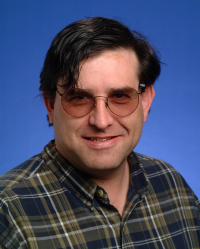
Presidential Associates Presidential Professor and Associate Professor of Computer Science and Bioengineering
Email: andrewhfagg@gmail.com
Phone: (405) 325-8606
Office: Sarkeys Energy Center 1162
Website: symbiotic-computing.org/fagg_html
Education
Postdoctoral Research Associate
University of Massachusetts Amherst
Ph.D., Computer Science
University of Southern California
M.S., Computer Science
University of Southern California
B.S., Computer Science
Carnegie Mellon University
Research Focus
Experience and Awards
Dr. Andrew H. Fagg is an associate professor in the School of Computer Science at the University of Oklahoma. He holds a BS in Applied Mathematics/Computer Science from Carnegie-Mellon University, and a MS and a PhD in Computer Science from the University of Southern California. His research focuses on the computational issues surrounding the symbiotic relationships between humans and machines. In particular, he is interested in primate and robot learning of motor skills and task-oriented representations; reaching, grasping, and manipulation; brain-machine interfaces; and interactive art.
NSF, “REU site on Embedded Machine Learning Systems,” Feb 2005-Jan 2008.
NSF, “REU site on Integrated Machine Learning Systems,” Feb 2009-Jan 2001.
National Institutes of Health, Northwestern University, “Development of a Bidirectional CNS Interface or Robotic Control,” May 2005-April 2009.